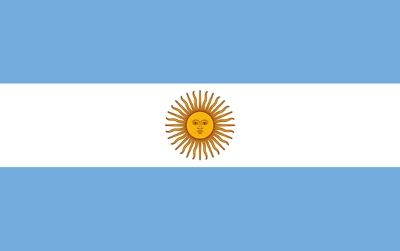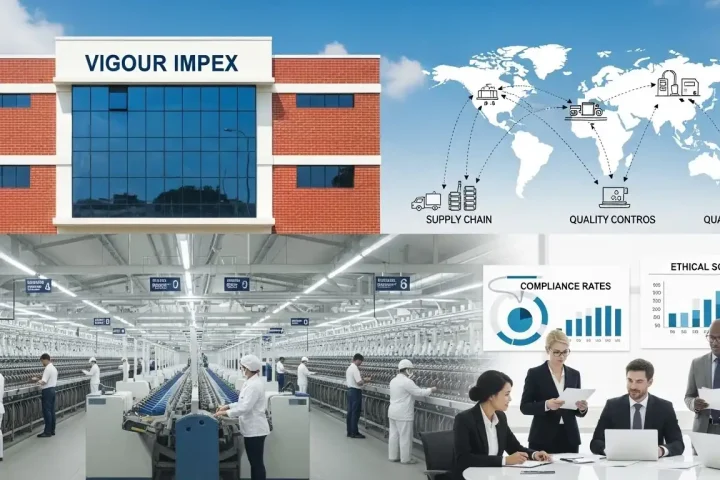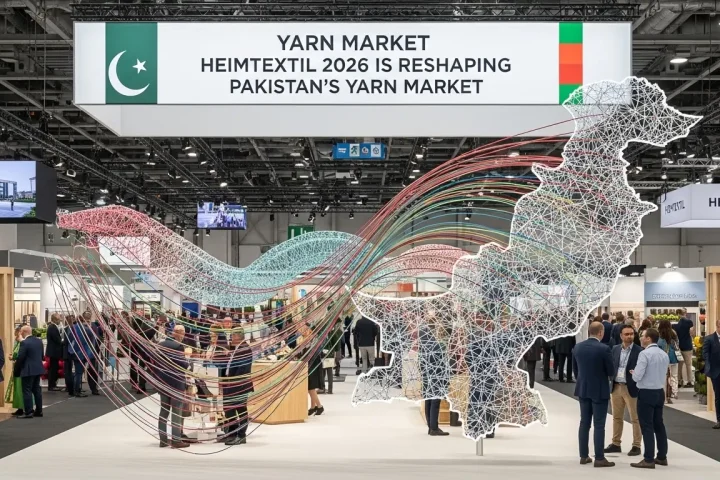Imagine waking up on a soft, breathable bedsheet that keeps you cool in summer and cozy in winter made without a single drop of toxic chemicals. That’s the power of organic cotton, and it’s changing the way we design our homes.
In 2026, home textile trends are moving toward natural comfort and responsible living. From hotel-style sheets to bathroom towels, families around the world are switching to eco-friendly organic fabrics that feel better and last longer. This isn’t just a fashion shift. It’s a lifestyle movement built on health, sustainability, and style.
The Rise of Conscious Living
Over the last decade, people have started questioning not just what they eat or wear, but even what they sleep on. Plastic bottles were replaced with reusable ones. Synthetic fabrics began losing popularity. Now, the same awareness is reaching bedrooms, bathrooms, and living rooms.
The textile industry is responding quickly. In 2026, the global organic cotton home textile market is projected to grow faster than ever before fueled by environmentally conscious and health-aware consumers.

What Makes Organic Cotton So Special?
At first glance, organic cotton may look like regular cotton. But the real difference is in how it’s grown.
Farmers avoid pesticides, chemical fertilizers, and genetically modified seeds, instead relying on natural compost, beneficial insects, and rainwater. This clean approach produces fibers that are stronger, softer, and safer for everyone, creating home textiles that feel naturally luxurious.
Beyond comfort, the environmental benefits of organic cotton are huge. Less water, cleaner soil, and preserved biodiversity make it one of the most sustainable fabrics for home use.
Inside the Home: How Organic Cotton Improves Daily Life
Bedroom Bliss
Organic cotton bedsheets allow your skin to breathe. They prevent itchiness, heat buildup, and allergies, making them perfect for children and adults alike.
Bathroom Luxury
Organic cotton towels are more absorbent, dry faster, and stay fluffy even after repeated washing. They reduce the need for chemical softeners or bleach.
Living Room Calm
Curtains, cushions, and throws made from organic cotton provide natural texture, elegance, and comfort while staying eco-friendly.

Beyond Comfort: Environmental Impact
Every organic cotton product tells a story of environmental responsibility:
- Water Conservation: Saves up to 80–90% water compared to conventional cotton.
- Soil and Water Protection: No chemical runoff contaminates rivers or farmland.
- Lower Carbon Footprint: Natural farming locks carbon in the soil instead of releasing it into the atmosphere.
- Support for Wildlife: Organic fields encourage biodiversity, attracting bees, birds, and beneficial insects.
Ethical Benefits: Farmers and Communities
Behind every thread of organic cotton is a farmer working under safer, fairer conditions. Fair Trade programs often ensure safe working environments, fair wages, and proper education for workers’ children.
One Indian farmer shared:
“Since we started organic farming, my land has become healthy again. I can grow vegetables alongside cotton safely, and my children can help without health risks.”
The Boom in 2026: What’s Driving Growth
Several key factors are pushing organic cotton into homes worldwide:
- Health-Conscious Shoppers: People are reading labels not just for food but for fabrics too.
- Eco-Friendly Interior Design: Architects and designers are choosing natural fabrics for furniture, curtains, and bedding.
- Certification Awareness: Customers look for GOTS, OEKO-TEX 100, and Fair Trade certifications as proof of authenticity.
- Online Shopping Growth: E-commerce platforms make it easier than ever to access genuine organic cotton products.
- Rising Luxury Demand: Premium homes and hotels prefer chemical-free, sustainable textiles for better guest experience.
How to Spot Real Organic Cotton
Due to growing demand, some products falsely claim to be organic. Here’s how to ensure authenticity:
- Check Certification Logos: Look for GOTS, Fair Trade, or OEKO-TEX 100.
- Read Fabric Details: Ensure the label says 100% organic cotton.
- Feel the Material: True organic cotton is soft, thick, and breathable.
- Research the Brand: Ethical brands like Vigour Impex share sourcing information and production transparency.
Caring for Organic Cotton
Organic cotton isn’t coated with synthetic finishes, so it requires gentle care:
- Wash in cold water to prevent shrinking.
- Use mild detergent and avoid bleach.
- Air dry or use low-heat tumble drying.
- Iron lightly if needed.
Proper care extends the life of your fabrics and maintains their eco-friendly benefits. Vigour Impex recommends separating colors, avoiding over-drying, and handling fabrics gently to keep them naturally soft.
Emerging Trends in Organic Cotton for 2026
- Smart Textiles: Integration of organic cotton with technology, like sensor-embedded bedding to monitor sleep and fabric freshness.
- Luxury Hotels Going Green: Resorts are switching to certified organic cotton sheets, towels, and blankets.
- Small Artisan Brands Rising: Boutique makers offer handcrafted quilts and towels using 100% organic fibers.
- Customizable Sustainable Home Décor: Consumers can now order personalized organic cotton cushions, curtains, and table linens for their homes.

Why 2026 Belongs to Organic Cotton
People today want more than just beautiful homes; they want spaces that are ethical, sustainable, and healthy. Organic cotton fits perfectly into this vision. It respects nature, supports honest labor, and delivers softness and quality that lasts.
Brands like Vigour Impex continue to champion eco-friendly textile production, ensuring that every home textile reflects care for both people and the planet. From bedsheets to towels, each product is a small step toward a more sustainable and comfortable future.
FAQs
1. What makes organic cotton different from regular cotton?
It’s grown naturally without pesticides or chemicals, making it safe for your skin and the environment.
2. Why are organic cotton products more expensive?
Organic farming uses natural methods and fair wages, increasing costs but improving quality and sustainability.
3. Can organic cotton last as long as synthetic fabrics?
Yes, it is stronger, softer, and retains quality even after multiple washes.
4. Are all “eco” labels reliable?
No. Always check for GOTS or OEKO-TEX 100 certification.
5. Is organic cotton suitable for allergy-prone individuals?
Absolutely. It’s hypoallergenic and free from irritants.
6. How can I introduce organic cotton into my home easily?
Start with daily-use items like bedsheets, towels, and pillow covers. Small changes make a big impact.
7. Which brands are leading in organic cotton home textiles?
Global brands like IKEA and Pottery Barn, as well as ethical brands like Vigour Impex, are leading the way.
Final Thoughts
Organic cotton isn’t just a material trend, it’s shaping the future of home comfort. In 2026, homes that care for people will also care for the planet. Every sheet, towel, or curtain you buy made of organic cotton helps reduce pollution, supports ethical farming, and creates a healthier living space. Switching to organic cotton is a simple yet powerful choice: better sleep, fresher air, and a sustainable world. Brands like Vigour Impex continue to make eco-friendly, high-quality organic cotton home textiles accessible, ensuring that every thread tells a story of comfort, responsibility, and change.







